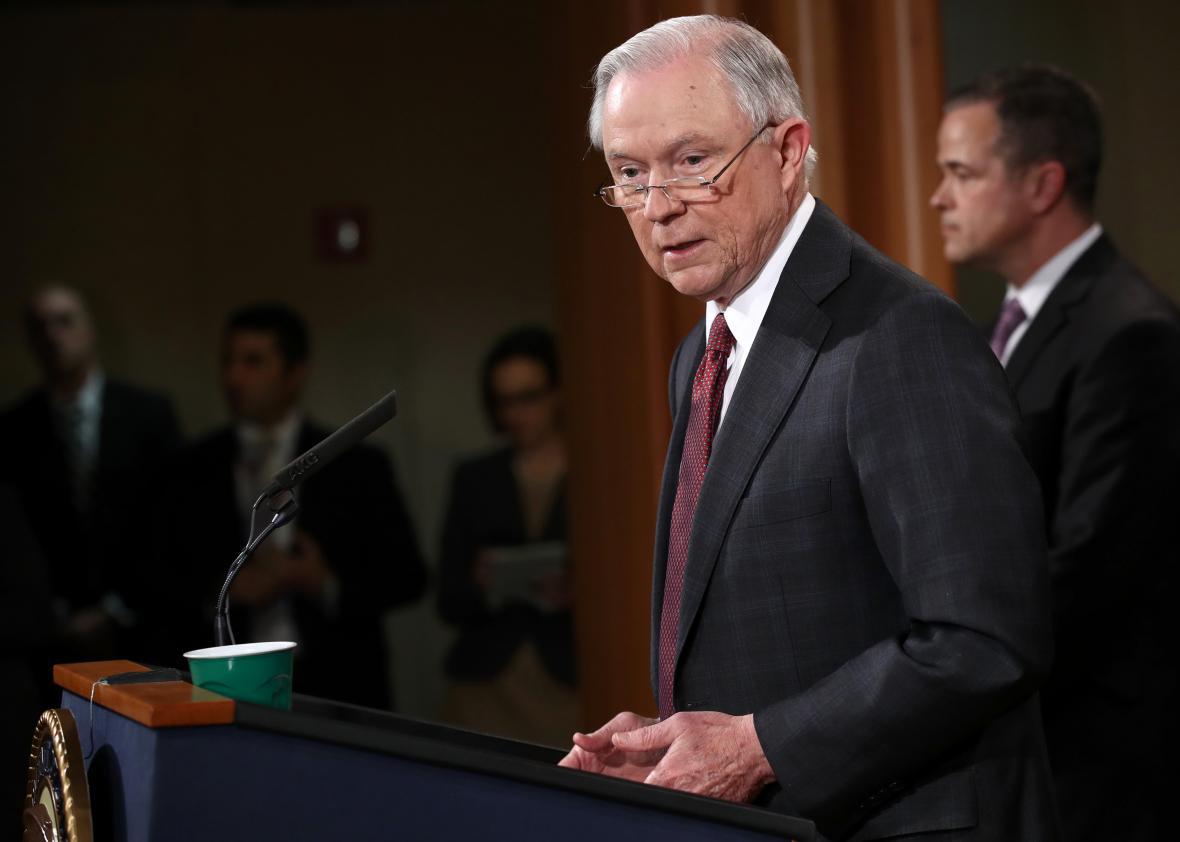
Win McNamee/Getty Images
Jeff Sessions will recuse himself from “any existing or future investigations” of the Trump campaign, the attorney general announced at a press conference Thursday. While Sessions was careful not to confirm that any such investigation is ongoing, his decision to recuse comes amid numerous reports that intelligence agencies have been looking into communications between the Trump campaign and Russian officials. The announcement comes one day after the Washington Post revealed that, contrary to what Sessions told the Senate Judiciary Committee during his confirmation hearing in January, he spoke on two occasions with Russian ambassador Sergey Kislyak during the presidential campaign.
Sessions said he reached his decision to recuse on Thursday, after a meeting with staff, but implied it was not a reaction to the controversy that has engulfed him since Wednesday night’s story in the Post. In the written statement explaining the decision, Sessions does not specify that he is recusing himself just from Russia-related investigations, but rather all investigations related to “the campaigns for President of the United States.” (The plural form of “campaign” appears twice in the statement, suggesting it was a deliberate reference to the Clinton campaign.)
Speaking to reporters in his typically friendly patter, Sessions said he did not intend to be deceptive when he told Congress, in response to a question from Sen. Al Franken, that he “did not have communications with the Russians.” Sessions said he had been “honest and correct” in response to the question as he “understood it at the time,” but conceded that, “in retrospect,” he should have thought about his meetings with Kislyak and disclosed them.
During a brief question-and-answer period, Sessions was asked what he and the ambassador had talked about. Sessions replied: “Just normal things,” before specifying that the conversation had been about “terrorism” and “the subject of the Ukraine.” (The subject of Ukraine is what ultimately got Trump’s national security adviser Michael Flynn to resign, after reporting surfaced that Flynn had talked to Kislyak about Ukraine-related sanctions and then lied about it.)
Sessions did not make explicit reference during Thursday’s press conference to a written questionnaire he submitted to the Senate Judiciary Committee, in which he was asked, “Have you been in contact with anyone connected to any part of the Russian government about the 2016 election, either before or after election day?” Sessions had written down “no.” But, asked by a reporter whether he and Kislyak had discussed the campaign, Sessions said that while ambassadors can be “pretty gossipy” and that the meeting occurred during the campaign season, he could not remember “any specific political discussions.”
In response to a question about why the Russian ambassador had sought to meet with Sessions—and whether Sessions believed it had to do with his role as an adviser to candidate Trump—Sessions replied, “Ambassadors are always out trying to find out things and advance their agenda.”